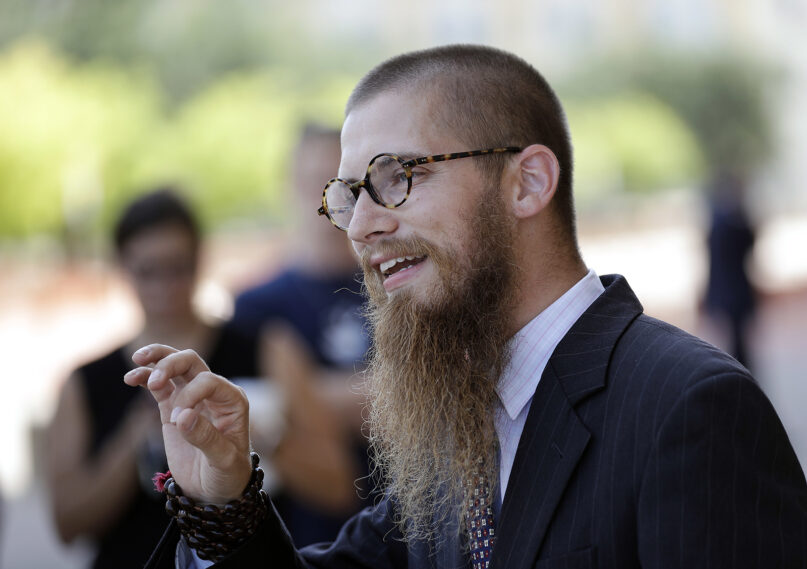(RNS) — The last time Kenneth Smith was slated for execution, he was strapped to a gurney for an hour while workers repeatedly attempted to insert intravenous lines in his chest, hand, arm and neck to execute him by lethal injection. His was the third botched execution in Alabama last year.
Now, Smith, who was convicted in 1996 for his role in the 1988 murder of Elizabeth Sennett, is scheduled again for execution on Jan. 25, this time via nitrogen hypoxia. If it occurs, it will be the first time a person is executed by this method in the United States. But in a lawsuit filed Wednesday (Dec. 13), Smith’s spiritual adviser, the Rev. Jeff Hood, a priest in the Old Catholic Church, argues that the restrictions imposed on him via waiver would violate his right to the free exercise of religion.
That waiver, which is included in the lawsuit, informs Smith that “in the highly unlikely event that the hose supplying breathing gas to the mask were to detach,” free-flowing nitrogen gas could create a “small area of risk.” The waiver therefore instructs Hood to remain 3 feet from Smith’s mask.
These instructions not only demonstrate the risk posed to witnesses of the execution, Hood’s lawyers argue in the lawsuit, but inhibit Hood’s right to minister to Smith by forcing him to stand apart from Smith during the execution. The lawsuit names the commissioner of the Alabama Department of Corrections and warden of Holman Correctional Facility as defendants.
“Here, the ADOC’s (Alabama Department of Corrections) actions are not neutral,” the lawsuit says. “They are hostile toward religion. Indeed, they deny a prisoner his chosen spiritual advisor’s touch at the most critical juncture of his life: his death.”
Last year, the U.S. Supreme Court ruled in Ramirez v. Collier that a spiritual advisor is permitted to touch prisoners during execution. In a news conference Thursday morning, Hood said Smith, whom he described as a “follower of Jesus” with a “deep love for God,” comes from a tradition where the laying on of hands “is a means by which a deeply spiritual moment happens.”
“I don’t think it’s our place to question the value of certain religious exercises,” Hood added. “I think it’s our place as a free society to protect them.”
Hood, who opposes the death penalty, isn’t alone in speaking out about Smith’s case. A petition opposing “the introduction of the gas chamber as a form of execution” had been signed by nearly 12,000 Jewish community members as of Thursday afternoon.
Hood’s lawsuit asks the District Court for the Middle District of Alabama to issue declaratory judgments that the defendants’ actions to inhibit the plaintiff from having contact with Smith in the execution chamber violate Hood’s First Amendment rights. It also asks for a preliminary injunction that stalls Smith’s execution until it can be performed in a way that provides for Hood’s safety and allows Hood to have contact with Smith during the execution.
During Thursday’s news conference, Hood recalled that when Smith first requested him as his spiritual adviser, Smith asked, “Are you willing to die to do this?”
“This is what I do. This is what I feel called by God to do. I think that the message of Jesus is very clear,” said Hood. “What you have done to the least of these, you have done to me. We are called to be in these spaces. So I felt like I couldn’t say no.”





